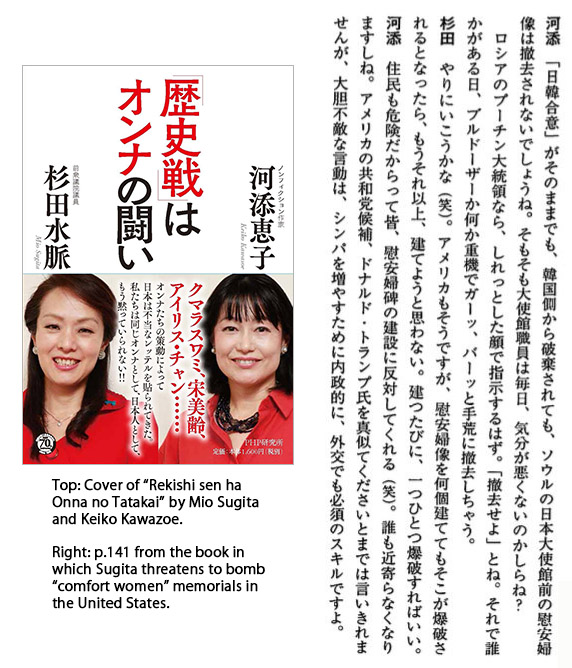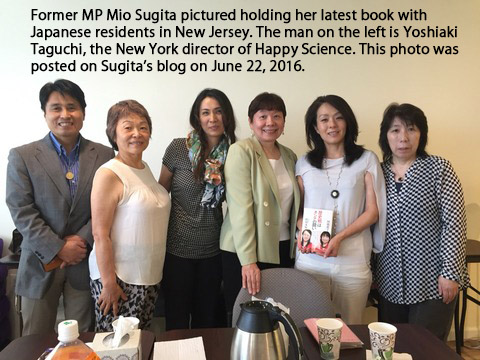In recent months, the Japanese government has made increasingly aggressive moves challenging memorials dedicated to the victims of the Japanese military “comfort women” system not just in front of the Japanese Embassy in Seoul or the Japanese Consulate in Busan, South Korea, which Japanese officials argue violate the Vienna Convention on Diplomatic Relations protecting the “dignity” of diplomatic missions, but anywhere in the world.
The latest development in this trend is the amicus curie brief the Government of Japan filed in the lawsuit Gingery et al. v. City of Glendale on behalf of the Global Alliance for Historical Truth (GAHT), a Japanese far-right extremist group.
GAHT filed a lawsuit against the City of Glendale, California in 2013 after the city installed a memorial dedicated to the victims of Japanese military “comfort women” system. The suit was widely criticized by Asian American communities including local Japanese American groups, legal experts, and others, and resulted in a series of defeat by GAHT including penalties under California’s anti-SLAPP statute against frivolous lawsuits designed to stifle free speech.
On January 9, 2017, GAHT filed a request to the U.S. Supreme Court to reconsider the appeal court’s decision against them. For the Supreme Court to take up a case, four out of nine (currently eight due to the passing of the late Justice Antonin Scalia) justices must agree to hear the case, and they do so only in about 1-2% of the cases each year.
In the amicus curie brief filed on February 22, 2017, the Government of Japan criticizes not just the constitutionality of Glendale’s installment of the memorial that, in their view, “disrupt[s] the United States’ foreign policy” and “presents a significant impediment to Japan’s diplomatic efforts” as “the monument is not inline with the spirit of” the Japan-ROK Agreement (2015), but also “the inscription on the Glendale monument” itself. “Japan strongly disagrees that the inscription on the Glendale monument accurately describes the historical record, which Japan has studied at length,” the amicus states.
Attorney Jessica Ellsworth, a registered foreign lobbyist at the law firm Hogan Lovells which the Japanese government uses, served as the counsel of record for the Japanese government. In October 2015, Hogan Lovells set up an apparent astroturf (i.e. a public relations campaign disguising itself as a “grass-roots” civic group) Voices of Vietnam, which appeared out of nowhere, purchased a full-page color ad on the Wall Street Journal and held a press conference at the National Press Club to coincide with the visit of the President of South Korea criticizing the Korean military sexual violence against Vietnamese women during the Vietnam War. The press conference featured the former U.S. Senator Norm Coleman, also a lobbyist working for Hogan Lovells. Voices of Vietnam has been inactive ever since.


